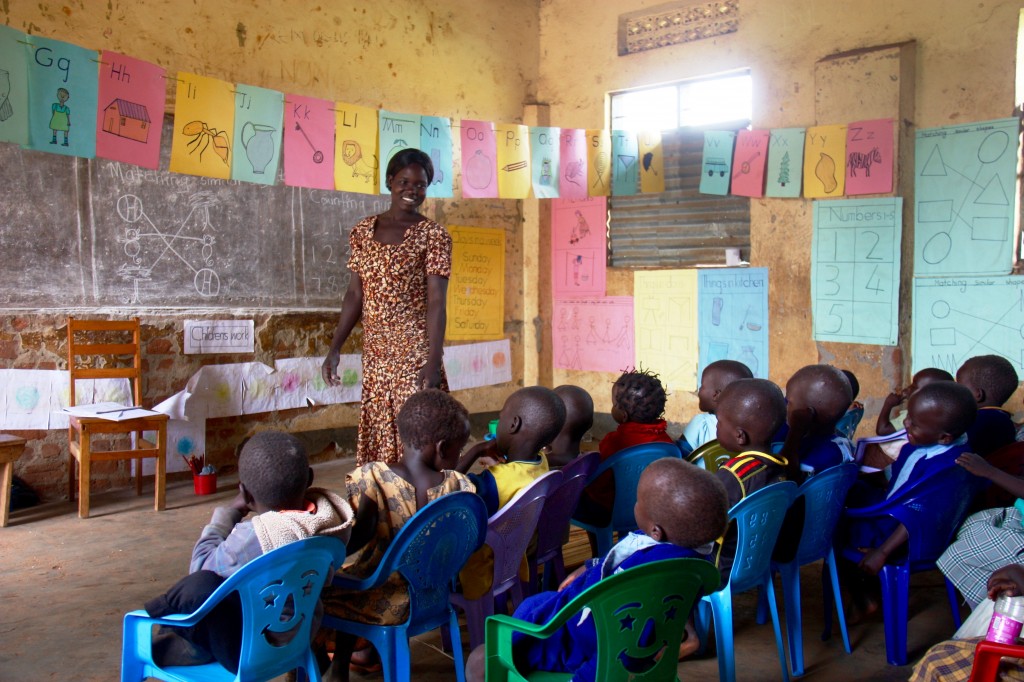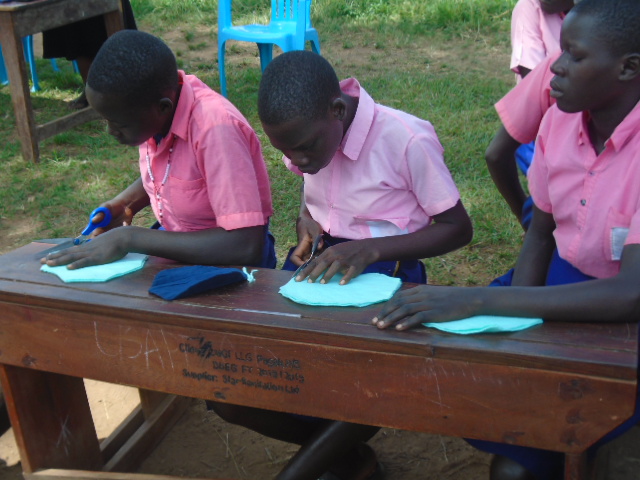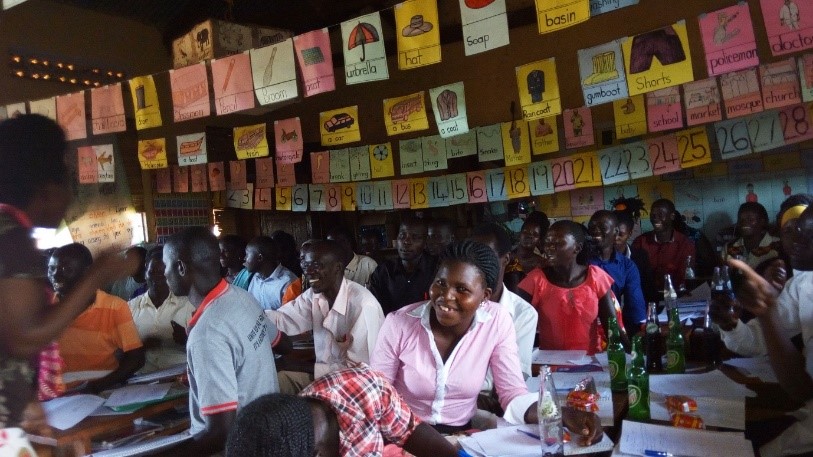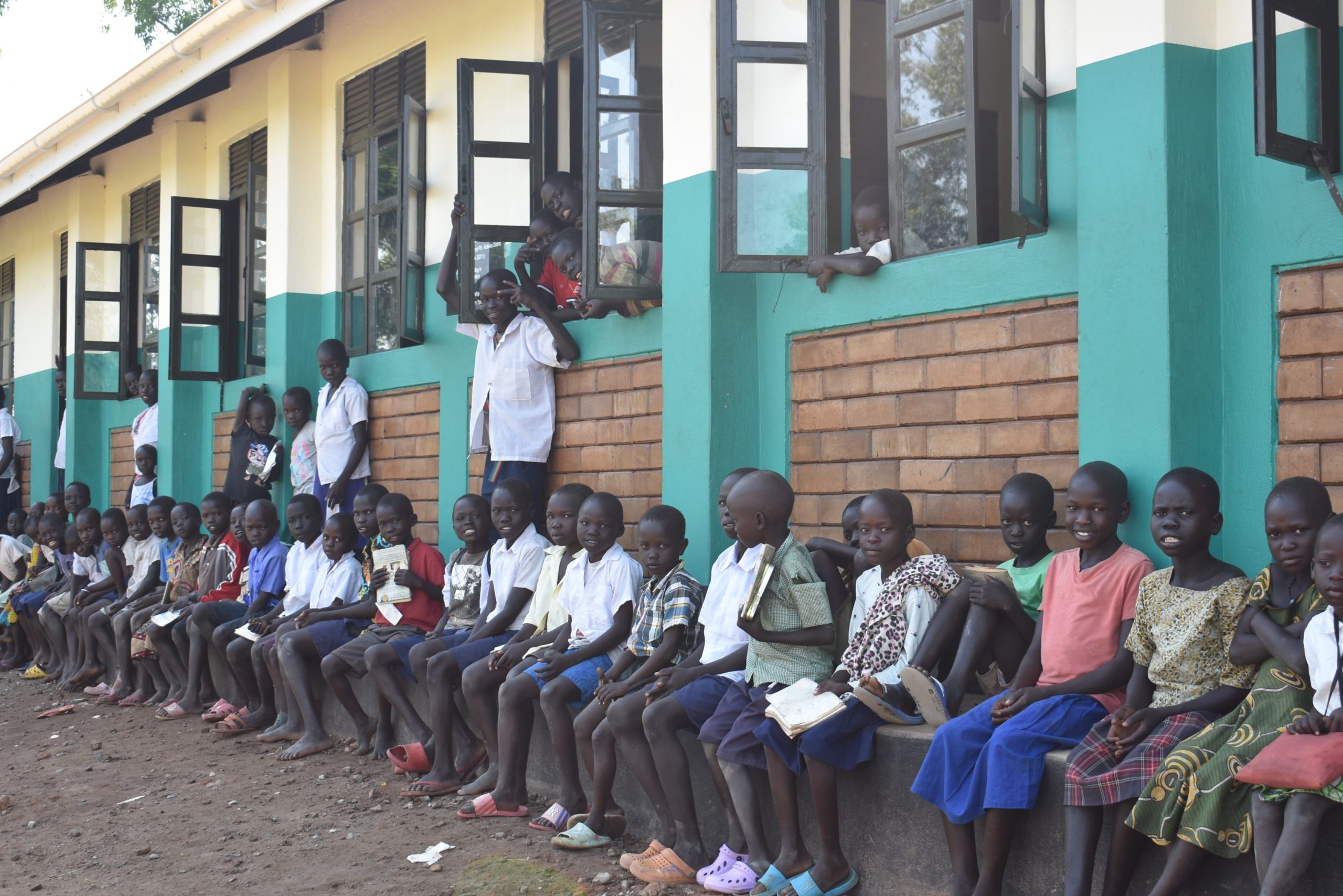Building blocks for the Future
While continuing to support our current programmes, we have a number of exciting new programmes being implemented and more in the pipeline:
Lockable Libraries
Our Lockable Libraries project aims to address challenges of storage and access to books in extremely remote rural primary schools – supporting distribution of books donated by our partners Book Aid International. Lockable Libraries are steel trunks on wheels, which can easily be moved from classroom to classroom. They are made to repel rats and termites, and padlocked to protect the contents – each library contains shelves to store 200+ fiction, non-fiction, reference, and textbooks.
We will provide one-day Book Workshops – training teachers, showing how to handle books, reading stories to bring the characters to life, asking pupils to draw favourite characters or talk about the story, encouraging them to read aloud to develop confidence. We will monitor regularly, obtaining primary leaving exam data. We aim to instill a love of reading, inspiring pupils to stay in education, especially girls, and progress to Secondary School. Please get in touch if you would like to know more, or would like to make a donation – info@africanrevival.org
Desk Benches
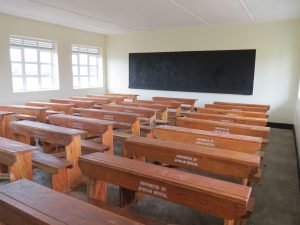 Classroom furniture makes a tremendous difference to both physical and mental well-being of students. Imagine sitting on the floor on average six hours a day, then being given a desk and chair to sit at? Pupils need to learn to write with a good sitting posture in a learning environment that motivates them to attend school. This picture shows exactly how we can transform a classroom.
Classroom furniture makes a tremendous difference to both physical and mental well-being of students. Imagine sitting on the floor on average six hours a day, then being given a desk and chair to sit at? Pupils need to learn to write with a good sitting posture in a learning environment that motivates them to attend school. This picture shows exactly how we can transform a classroom.
A desk bench that seats 3 to 5 children costs as little at £80 each. Desk benches create a welcoming environment that assists teachers in lesson delivery. The furniture is made from timber, enabling repairs to be more easily and inexpensively by the school management committee.
Girls Advocacy Clubs
Building on our multi-year Girls & Sanitation programme to Keep Girls in Education, African Revival has set up Girl’s Advocacy Clubs (GACs) at 20 primary schools in the Amuru District. Each club has 30 members, led by two Girls’ Club Leaders, elected by their peer group. The aim is for the clubs to run independently, with the support of Senior Female Teachers. To ensure sustainability, they will recruit new club members from P5 annually (at the beginning of term) but will retain P6 members to train the newcomers.
Workshops address issues such as good WASH practices, MHM, puberty, child marriage, assertiveness, and life skills; helping girls develop positive habits from a young age. School packs with training manuals and posters will be supplied so teachers can continue to run workshops after the programme has ended. Girls hold debates and are encouraged to invite boys and members of the wider community to join meetings, to help reduce stigma and normalise menstruation. It is evident from previous testimonials that boys’ attitudes towards menstruation have a big effect on MH issues and girls’ attendance at school. MHA comic books will be distributed to the 20 project schools, and many more schools in the Kitgum, Nwoya, Koboko and Lamwo districts across Northern Uganda.
As part of GAC activities, girls will be provided with materials and trained in how to make reusable pads; giving them the opportunity to learn to sew and gain a life skill, teach other girls and reach more beneficiaries – rather than handing out a finite number of pre-made pads, which eventually need to be replaced. This is a more sustainable solution for sanitary pad provision.
Mega Phonics
At present, literacy in Uganda is usually taught using rote memorisation techniques, but children are not taught to decipher sounds in words. This means they can memorise words they have already been taught but cannot tackle new words on their own. Phonics is an innovative, new teaching method, that correlates sounds with letters, providing children with a stronger literary foundation that is central to academic achievement in all subjects. In Uganda, the awareness and acceptance of Phonics as an effective teaching method is growing and is recognised by the Government of Uganda. It is included in the syllabus for training primary teachers, however, it is not focussed on in enough detail and there is therefore a large gap in the syllabus. Most voluntary teachers in rural schools where we work are not familiar with Phonics at all.
Between 2016 – 2018, African Revival introduced a Phonics programme in 25 primary schools in the Amuru and Nwoya Districts of Northern Uganda, followed by a continuation Phonics programme in a further 20 primary schools during 2019 – 2020 (funded by BFSS – British Foreign Schools Society, The Allen Trust and several other donors), which trained over 100 teachers and provided in-classroom support.
At the end of 2018, our Phonics programme showed literacy rates at 32.4%, compared to 12.9% literacy in the baseline data of 2016. Unfortunately, we were unable to obtain end of project data in 2020, due to the global pandemic and school closures.
This year, we have introduced Phonics training to 15 Early Childhood Development (ECD) teachers in another 5 schools in the Amuru District, as part of our Step-Up 3-year project (again funded by BFSS and African Revival). We have found that Phonics training not only improves literacy rates, but also improves teacher confidence and promotes collaboration between teachers. Teachers realise the importance of an effective classroom environment and develop teaching learning aids to support lesson delivery. The benefits to pupils being taught Phonics include; increased motivation and participation in lessons, increased confidence to read and write, improved literacy rates and reading ability. As a result of these projects, Phonics has been widely accepted by teachers, district officials, pupils, parents and other local community members, because of the real impact on literacy that stakeholders have seen.
Project Outputs: This 2-year project will implement a Phonics Teacher Training programme ‘Mega Phonics’; training 32 tutors and 100 student teachers at the Kitgum Core Primary Teaching College (KCPTC), as well as training 30 K1-P3 teachers from 10 primary schools in the Kitgum District (one of the schools will be the model ECD and primary school based on site at KCPTC), to maximise both the geographical reach, and number of beneficiaries impacted.
Teacher Training
We are continue to support teachers in the schools in Zambia, Uganda and South Sudan, by providing training and materials to help them in their work and day-to-day lives. We incorporate teacher training into many of our programmes, and have completed a new model Early Childhood Development Centre at Kitgum Core Primary Teacher Training College in Northern Uganda. Due to this new facility, Kyambogo University, the supervisory body of all Colleges in Northern Uganda (under the Ministry of Education), will be taking over mandate of training and certifying all ECD caregivers at KCPTC with a higher level of certification – Diploma award – the first of its kind in Northern Uganda. We also fund teacher training and top up salaries in South Sudan.
Infrastructure
All our infrastructure projects are built using eco-friendly ISSB (interlocking stabilised soil blocks).
We build 3 room classroom blocks so that multiple lessons don’t have to happen in the same rooms simultaneously. Included in the construction of classroom blocks is a lockable staff office, where teachers can store confidential material and exam papers. Where required we furnish classrooms with desk benches.
Schools Demonstration Farms
In Uganda and Zambia we run a school demonstration farm programmes to address low quality primary education, food insecurity and poor agricultural productivity.
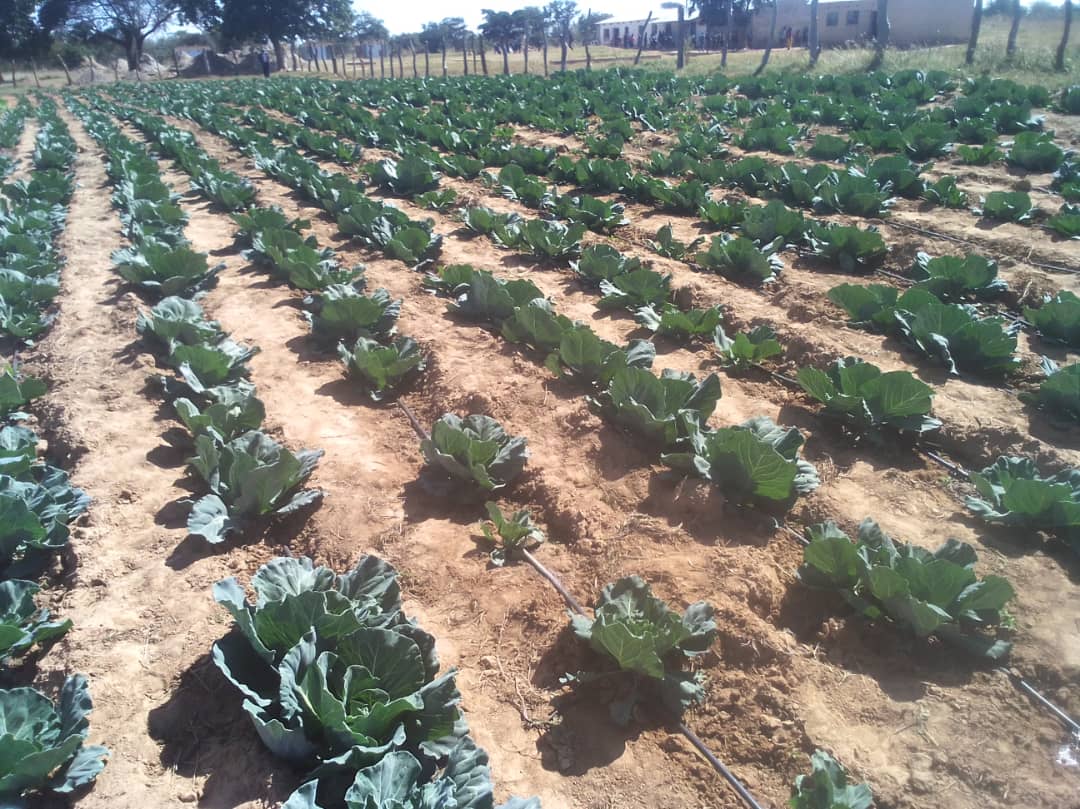 Many pupils find it difficult to concentrate in class because they are hungry, and often parents find it difficult to grow enough food. We work with school communities to establish parent-led farms and give agricultural, marketing and financial training. Profits from produce are split between the school, a group development fund and group members, and eventually the project becomes self-sufficient so our help is no longer needed.
Many pupils find it difficult to concentrate in class because they are hungry, and often parents find it difficult to grow enough food. We work with school communities to establish parent-led farms and give agricultural, marketing and financial training. Profits from produce are split between the school, a group development fund and group members, and eventually the project becomes self-sufficient so our help is no longer needed.
This is just a snapshot of the work we do! If you’d like to support any of our projects please get in touch at info@africanrevival.org

